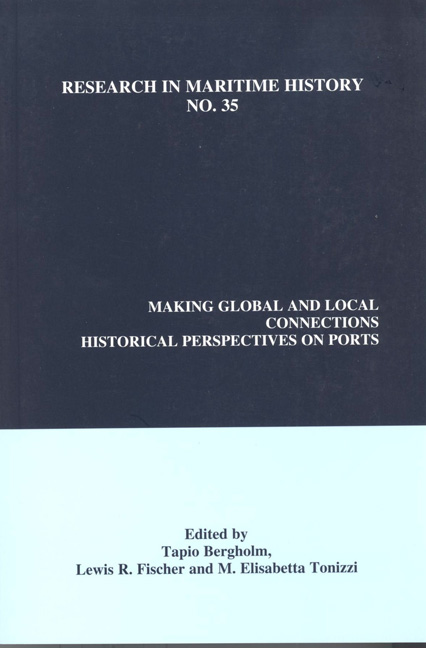“Introduction”
Summary
Maritime history in general is an international or, even better, a “global” enterprise, as ships, cargoes and seamen travel continuously around the world. Ports are focal nodes of this competitive, global activity: at the same time, they are tightly connected to local political, social, industrial and transport networks. Port history therefore sits, uncomfortably at times, at the crossroad of international, national and even local historiography.
On a warm, sunny day in June 2004 several port historians met on the island of Corfu, the site of the Fourth International Congress of Maritime History, sponsored by the International Maritime Economic History Association (IMEHA). During this congress a number of papers were presented on various aspects of port history that raised questions and methodological issues which begged for further elaboration and collegial discussion. This was when the idea of organising a special conference on port history arose. As we discussed this notion further, a number of researchers from around the world expressed an interest in participating. Doing something which involved the Fourteenth International Congress of Economic History, scheduled for Helsinki in August 2006, increasingly seemed to make sense. As a result, the editors of this volume submitted a proposal to the International Economic History Association for a special port history session that would have both global and local components. The aim was to address the complex interplay between global market forces, technological innovations and national transport systems, on the one hand, and local social and economic relations on the other.
When our proposal was accepted, and we issued a call for papers, it quickly became apparent that interest outstripped the number of papers which could be accommodated during the main conference. As a result, we decided to organise a dual conference, combining a session in Helsinki with a three-day workshop in Kotka, an important port town located about two hours away. The Kotka portion of this conference quickly received the support of the IMEHA. The combined conference, entitled “Making Global and Local Connections: Historical Perspectives on Port Economics,” was held in Kotka, 18-20 August 2006, and, within the framework of the Fourteenth International Congress of Economic History, in Helsinki on 21 August.
- Type
- Chapter
- Information
- Making Global and Local ConnectionsHistorical Perspectives on Ports, pp. xiii - xviiiPublisher: Liverpool University PressPrint publication year: 2007



